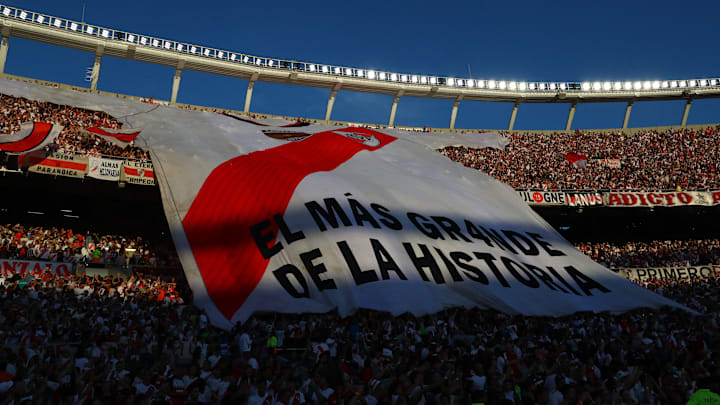River Plate, one of the largest soccer clubs in Argentina, just made history by opening up to investors with the creation of the "Club River Plate Financial Trust." That move has just put the Buenos Aires club on the Argentine Stock Exchange, making it possible for anyone or any business with at least 12,000 pesos to invest in the future of the millonarios.
Follow Playing for 90 on X (Twitter).
This is a big step for Argentine soccer and has woken up all kinds of debates. While River Plate hasn't become a Sports Corporation - S.A.D. - something which is forbidden by the AFA, the club found an intelligent method of attracting private capital. Crystal clear is the object of this strategy: to raise approximately US$20 million, which will be totally invested in raising the club's infrastructure. So, let's see in detail what this situation means to River and Argentine soccer in general.
What Is at play with "Club River Plate Financial Trust"?
It means clear intentions on the part of River Plate: it needs capital for projects such as renovations to Monumental Stadium-the legendary home of this club-a set of stadiums for the youth academy, the multi-sports gymnasium, and the club's university, Instituto River. Another way of putting it: the money will serve not only the first team but will go directly into its youth teams and other athletic and educational areas the club has supported.
Unlike the traditional model of financing, where clubs borrow money from a bank or another financial entity, River Plate is going to the stock market for this money. What's the big hook? To offer an attractive return to all those who invest. Those who buy River's shares will have it returned in 30 months, with readjustments for inflation and 9% interest. For investors, it is a relatively safe bet with predictable profits. For the club, it symbolizes a way not to get into heavy debt with banks and ensure the flow of cash required for these projects.
Controversy of sports corporations
River Plate's strategy has attracted headlines not only for its novelty but because it comes at a time when there is a standoff between the new president of Argentina, Javier Milei, and the AFA. Ever since he took power, Milei has been crystal clear: he is in favor of private investment in soccer clubs. He wants to enable the Argentine clubs to turn themselves into SADs, a model quite similar to what we see in Europe and that's starting little by little to settle in neighboring countries such as Brazil with the SAFs.
In December 2023, Milei published a decree outlining a series of proposals that would reform the country's economy. Among them was the possibility of turning clubs into corporations-a possibility barred today by the AFA, which staunchly defends an associative model of clubs. So strict is the federation regarding this topic that it has already threatened to disaffiliate any club desiring to transform itself into a SAD.
For that reason, River Plate is choosing another path. The fact that the club opens up to investors does not turn them into a SAD but allows them to attract external capital without breaking the AFA rules. Clever? Absolutely. And yet one question remains: will other clubs follow this formula?
